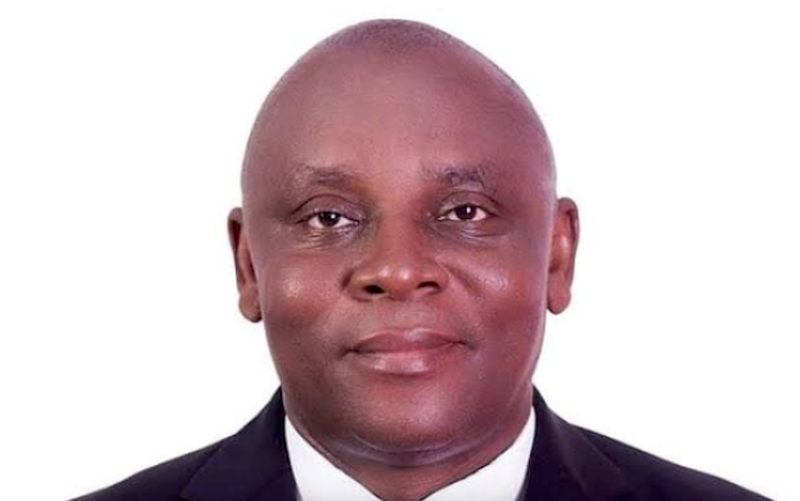President Tinubu’s engagement with the media Monday night was his first since his inauguration last year and it was quite telling in a few ways. For a man of his age, he showed a keen mental alertness that belies his obvious physical frailties. If the President did not have the benefit of advance questions, I give him kudos. He performed relatively better than what we saw during the campaigns.
But this was not close to the PMQs (Prime Minister’s Questions) we see every Wednesday in the British parliament. That one is the most brutal two hours in the life of every British prime minister. Tony Blair describes it as dreadful in his memoire. The media chat was far less rigorous than what Presidents go through in the White House Briefing Room. There were seven journalists who asked 12 questions in the one-hour show last night.
Reuben Abati, who introduced himself as the moderator, made introductory remarks on the recent mass deaths from stampedes for food, and asked the first question along that line. The president blamed the organizers of these events for the rowdiness and shoddy preparations and criticized Nigerians for not conducting themselves orderly when they see free food. Tinubu said that he had been sharing food at his Ikoyi home for years, but there has never been a stampede and wondered why there are no deaths or rush at food stamp centers in other countries.
There were other questions on elimination of fuel subsidy; huge debt servicing ratio in the 2025 budget; insecurity; inflation; cost of living crisis; foreign direct investment; tax reforms; food security and the new livestock ministry; and corruption – all predictable areas. But there was not a single question on foreign affairs.
Under Tinubu as ECOWAS chairman, the regional bloc almost disintegrated with the exit of three countries (Mali, Niger and Burkina Faso) last year. Two weeks ago in Abuja, ECOWAS Heads of States finally and regrettably accepted their departure after discretely begging them for a year. No doubt, the leadership of ECOWAS clearly mismanaged the relationships with these countries in the wake of military coups that dismissed their democratically elected leaders.
Next year marks the 50th anniversary of the founding of the West African organization. It was quite a miss that the Nigerian President was not taken to task by the assembled journalists on how he handled the crisis in ECOWAS. On the domestic front, I expected questions on the debilitating political crisis in Rivers State in which the FCT Minister is the main actor. How could the president be comfortable with what’s going on in Rivers?
There were only three follow-up questions – one from Maupe Ogun-Yusuf of Channels and the two from Babajide Kolade-Otitoju of TVC, a network owned by the president. Ogun-Yusuf’s follow-up was on why subsidy was not removed in phases while Kolade-Otitoju pressed the president on his unwieldy cabinet size despite his rhetoric on cutting the cost of governance.
The lack of follow-ups was obvious when Tinubu insisted that he does not regret doing away with fuel subsidy, despite the pains it brought, and went on to assert that the government ‘’has been meeting its obligations in the last three months without going to the NNPC ’’. What does this mean? Nobody asked.
Essentially, the President meant that despite non receipt of oil revenues in the last three months, the government has been functioning – a tribute to the efficacy of the administration’s fiscal policies.
But in real terms, the president was celebrating the inability of NNPC to fulfill its obligations. This was an opportunity for the journalists to ask questions on the oil industry; oil theft; the integrity and competence of the management of the state oil company. NNPC is supposed to receive and remit oil revenues to the consolidated fund as the Constitution stipulates, just as other incomes from VAT, company income tax, port charges and other taxes. These are then shared monthly to the federal government; the 36 states; FCT and the 774 LGAs.
The inability of the NNPC to account for crude oil sales and remit to the federation account means that the country is depending on debts raised through expensive junk bonds in the European markets to meet its obligations. Another lose end of the night was the inability of the President to drill down on his controversial tax reform bills and explain them clearly to Nigerians. These proposals have generated quite a storm across a section of the country with many leading politicians expressing doubts about Tinubu’s true intents.
I had expected the president to marshal out his argument on why he is introducing a new sharing formula for VAT, for example, and other innovations embedded in the bills. He glossed over the question as if the people complaining are insignificant lot.
I was glad that Ogun-Yusuf brought up the issue of corruption. For me, corruption, incompetence and decadence are the major afflictions of this country. The President said some of his policies like the students loan scheme are meant to discourage corruption since people steal in order to pay school fees and meet other personal demands.
Not quite correct. Public officials who steal billions to build housing estates, shopping malls and luxury items are not motivated by the need to meet basic requirements. A former governor once boasted to me that he had already kept aside N1 billion to each of his four children and that they would never have access to the money until they reach adulthood.
That’s one of the reasons they steal – to build cash empires sand portfolios of real estate for their children! Overall, it is commendable that Mr. Tinubu has finally decided to speak to Nigerians directly, instead of through long and disdainful press releases from his media team. I look forward to the day a Nigerian leader will walk stand before the State House press corps and take questions from the correspondents covering the Villa. The Media Chat arrangement is getting too vapid.
